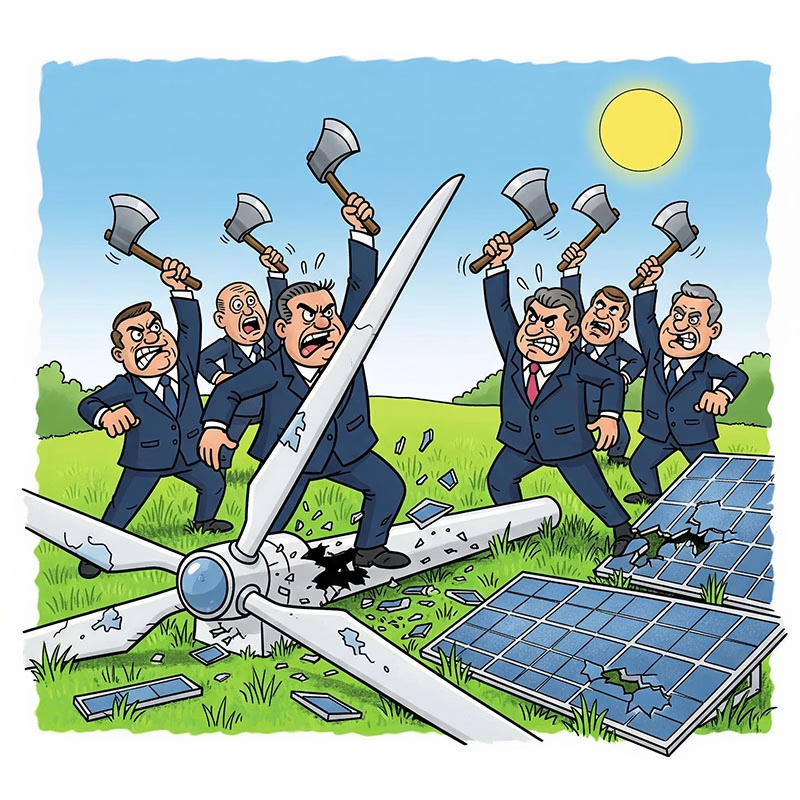The latest version of the Senate’s sweeping legislative package delivers a serious blow to ongoing and planned wind and solar projects, slashing critical tax incentives and introducing a new tax on future projects.
An earlier draft of the bill, released by Senate Republicans, proposed reducing tax credits for renewable energy projects based on their construction start date. Under that proposal, projects breaking ground in 2024 would qualify for full credit, those in 2025 for 60 percent, and projects in 2027 just 20 percent — with credits phasing out entirely after that.
Revised bill
But the revised bill raises the bar significantly: only projects that begin producing electricity before the end of 2027 will now qualify for the credits — a much tougher and more uncertain threshold.
Adding to the industry’s concerns, the bill introduces a new tax on some wind and solar projects placed in service after 2027. Projects could be penalized if a specified portion of their components originate from China.
These changes represent a sharp turn from the 2022 Inflation Reduction Act, which included hundreds of billions of dollars in tax credits for low-carbon energy and was expected to drive down U.S. emissions dramatically.
What it means for developers
For developers of planned solar and wind projects, the revised bill could cause significant disruptions. Projects already in the pipeline — especially those not expected to begin generating electricity before 2028 — now face the risk of losing federal support or being hit with additional taxes. This uncertainty may delay investments, increase financing costs, and force some developers to cancel or scale down projects. Rural regions and emerging clean energy hubs, which were counting on these developments to drive job growth and infrastructure, may be among the hardest hit.
The GOP-backed rollback is viewed as a win for the party’s right flank, which has demanded aggressive cuts to clean energy subsidies. It’s a setback for more moderate Republicans who preferred a slower, more measured phaseout.

Leave a Reply